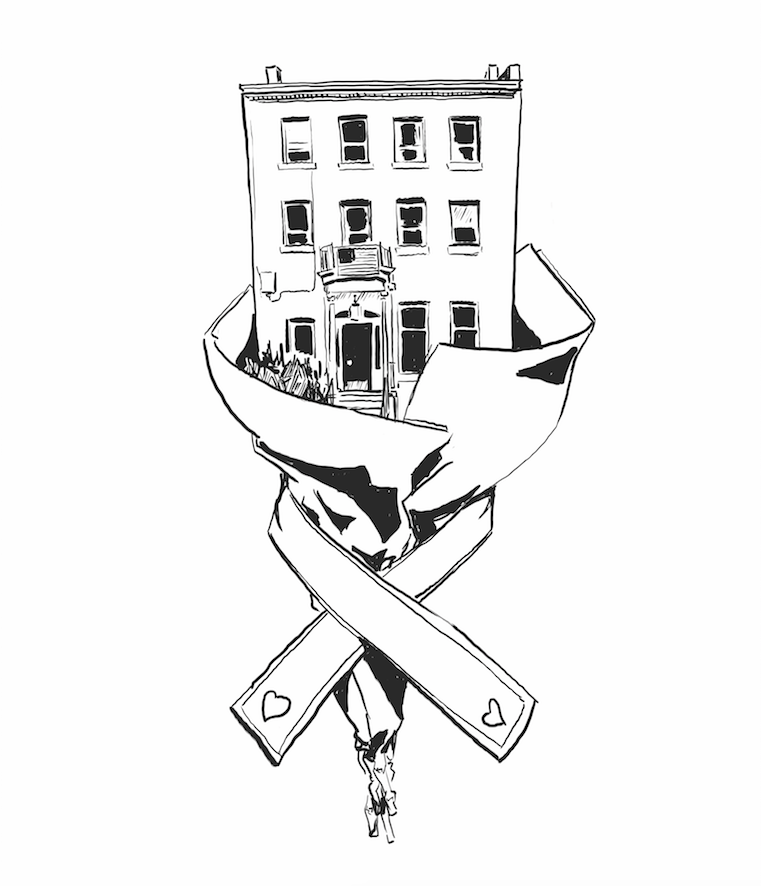
There’s a word in Chinese — often used to describe plots in literature and film — that describes a beginning and an end that parallel each other. In literal terms, the start and the finish are images of the other. Whatever ensues in the middle, whatever twists and turns the plotline takes, however seemingly lacking in narrative the story may be, the tale is still governed by this structure. Its promise is simple but profound: Everything will come full circle, and if it hasn’t, the end has yet to be reached.
Some part of me has always deeply believed in this idea of sau-mei-foo-ying ‘首尾呼應’. In its dedication to a life that somehow all works out the way it’s meant to in the end, it gives me strength in the promise that I will always return to the place that raised me, Hong Kong. Another part of me acknowledges that I desperately need to believe in this concept, for otherwise, I’m terrified of being forever trapped in that middle tangle of incomprehension and lack of direction — forever stranded in the greyish in-between.
Perhaps it’s a result of the cyclicity of the syllables and sounds of my name — hana mei-han. Or perhaps it’s directly correlated to the date of my birth, Feb. 12 — 2.12. Or perhaps even, it’s because so many elements within my family seem to skip a generation — that connection I share with my popo that can only be described as a spiritual bond that somehow leapt over my aunt and mother, or the fact that my sharply angled jawline and affinity for painting come from a grandmother taken too soon.
It seems like silly logic, I know. Too annoyingly similar to the John Lennon quote that always seems to be posted on cafe walls against a blurred ocean scene: “Everything will be okay in the end. If it’s not okay, it’s not the end.” It’s the kind of thinking that mothers tell their children in times of confusion or heartache to reassure them that the world is a good place, to protect their innocence and naivety before reality inevitably gives them whiplash.
Yet, it is the philosophy that colors my world.
However, to clarify, I would like to throw in a nuance to this seeming cliche about beginnings and ends. While both the quote and the Chinese phrase point to the cyclicity or parallel nature of starts and finishes, the part that gets me is that amorphous middle, the jumble of peaks and troughs that delineate our lives. It’s a confusing place to be, made slightly less atrocious by the certainty of an okayness that is soon to come.
And okayness is exactly what I mean. I don’t believe the idea promises any sweeping glory, just little moments where everything seems to be, well, okay. It’s the promise of dizzyingly late nights with best friends discussing everything yet nothing; the promise of Yale Dining bringing out your favorite beetroot and kale salad mixture on a day that seemed unbearably terrible until you blearily stumbled into the dining hall; the promise of that light buzz that hits your veins when your morning coffee kicks in. These moments might ultimately be insignificant in the grand trajectory of your life, but they are the things that maintain the balance that keeps us going.
I am a person of stark juxtapositions: I like to be in control, I like clarity and cohesion, yet I live in a sea of ambiguity that I have no command over. It’s not any particularly unique way of feeling, but it’s like someone wrote the book of life in a language that I can very clearly read but have no way of actually deciphering. And as a result, I like the reassurance that comes with this albeit naive belief of mine.
It might be rubbish right now, but something will happen, however big or small, that will realign the imbalance and make it okay again. Don’t worry.
Hana Davis | hana.davis@yale.edu







